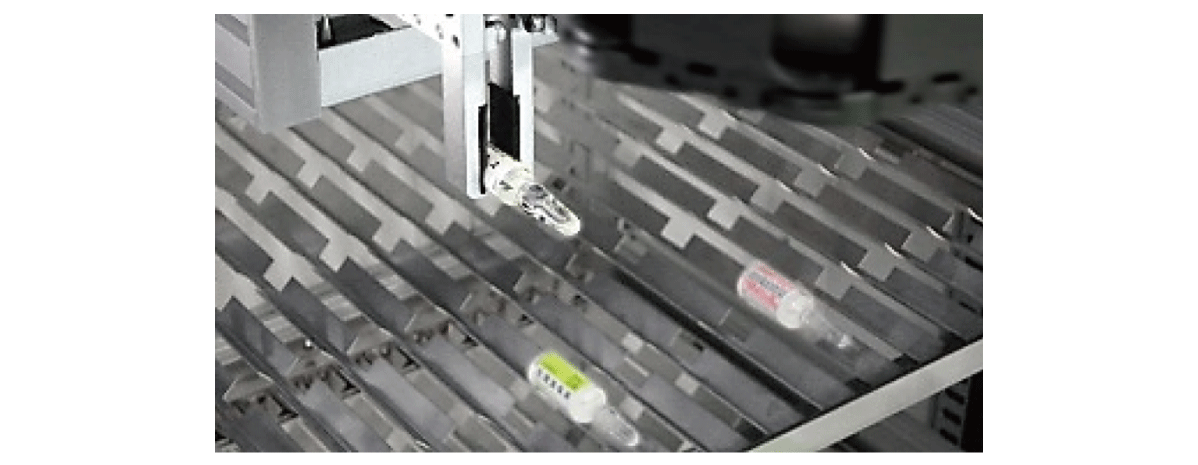

Site Search

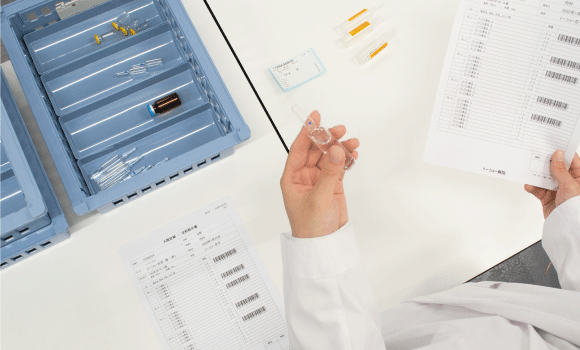
Injection drugs are more effective than systemic and topical drugs and are often mixed and dissolved before administration, so care must be taken when handling them.Therefore, it is of utmost importance that injection drugs be prepared in advance for each patient and for each administration in order to prevent administration of the wrong drug or to the wrong patient.
Human incidents can occur with visual tasks such as sorting patient labels and injection drugs, picking injection drugs, checking quantity, and patient matching.
Human incidents can occur if the final inspection of injection drugs, quantity of injection drugs, and patient matching is done only visually.
Manually reshelving returned medicines or replenishing injection drugs opens the door to mistakes in the reshelving destination or replenishment destination.
Injection drug prescriptions, labels, and injection drugs are prepared and set for each patient and for each administration.This kind of automatic dispensing helps achieve patient-specific personalized injection drug sets.
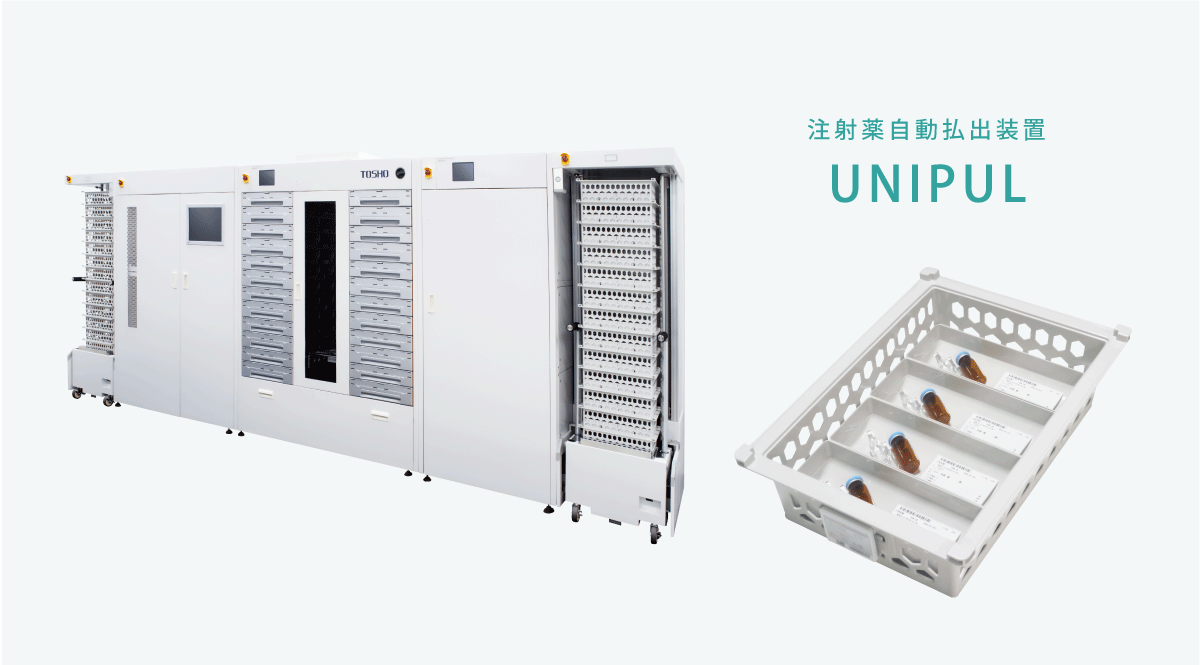
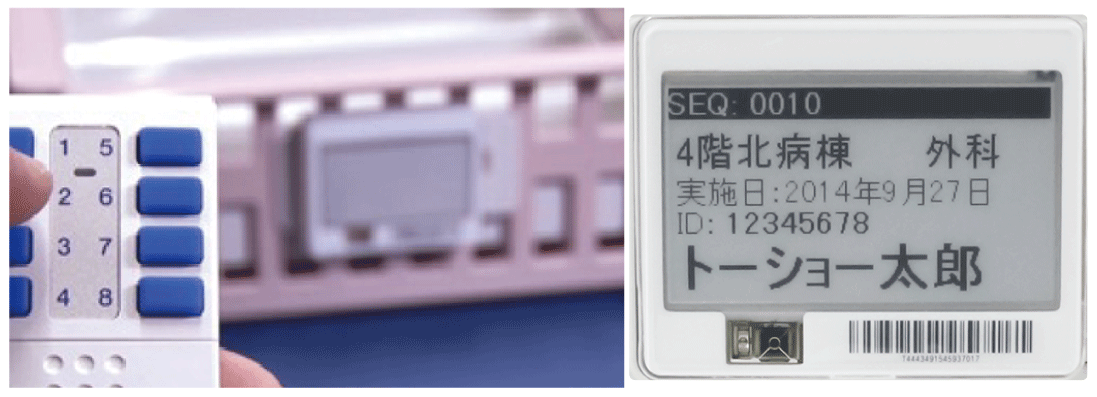
Electronic real-time updates prevent patient tray pickup errors and clearly readable digital characters help prevent mistakes.This function is also effective for protecting personal information, as it allows batch display conversion through remote control.
Users can switch between multiple apps installed on their mobile devices and use them for filling checks, product name checks, quantity checks, and preparation checks, contributing to the inspection work in each session.
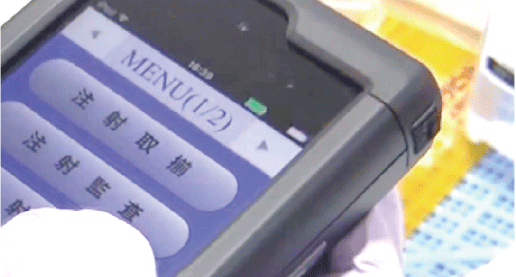
Identification work
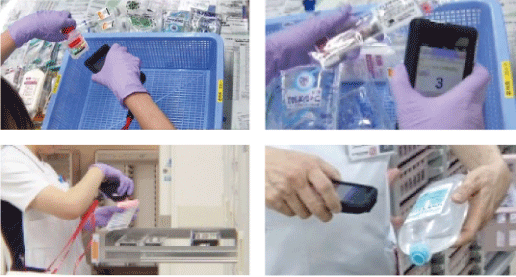
Checking the GS1 code of medicines on PDA terminals
Medicines returned from the ward are automatically sorted and dispensed on a priority basis.The GS1 data bar accurately identifies the medicine name and standard, and the camera scan determines the expiration date of the medicine.
